Spending your retirement years in an RV has more benefits than you may realize. When you cut expenses by selling your home and reducing belongings and put that money towards creating fun and amazing memories by traveling in an RV, you can truly enjoy your “golden years.”
Let’s look at why you should consider retiring in an RV and the best way to prepare for the transition. The RV life offers plenty of new experiences, new friends, and a new, less stressful way of life that may be just what you’re looking for!
10 Reasons to Consider an RV Retirement
1. Freedom to Travel in Comfort

When you live in an RV, you’ll have the freedom to choose when and where you want to travel.
Often, people have a “bucket list” they would like to do or see when they retire, and RV travel can make a fun adventure of fulfilling each goal on a relaxed timeline.
Every RVer friend I have has great memories of hidden gems they stumbled upon on their journeys, as it’s common to take roads less traveled to avoid highway traffic.
If you finally reach a campground or city you booked but find it isn’t for you, it’s easy to cancel the rest of your reservation and drive off to find a more suitable place to stay.
But, the biggest perk of retiring in an RV is that you travel with all your belongings, not just what can fit into a suitcase or two. There are no worries that your bed may be uncomfortable or infested with bedbugs like when you stay in hotels.
Lastly, there is a recreational vehicle for the wants of every person. For example, if you love traveling in style, you can buy a luxury Class A motorcoach or fancy fifth wheel.
If you prefer the ease of a smaller camper or love the minimalistic lifestyle, you can pick a teardrop or short travel trailer. If you’re on a budget, you can buy a used Class C motorhome or a well-appointed travel trailer for between $5,000 and $30,000.
2. RV Retirement Usually Costs Less
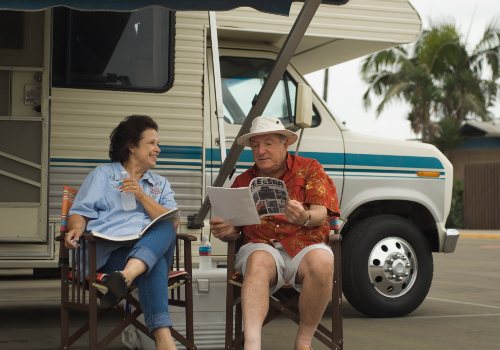
For most retirees, switching from a home to an RV will cost less. On average, full-time RVers spend around $2,250 monthly for all expenses, including meals and RV insurance.
If you were paying regular expenses plus a mortgage payment, HOA fees, and homeowner’s insurance, eliminating them can drastically change your ability to afford full-time travel.
However, many retired RVers, myself included, only spend around $1,500 a month, while others with hefty retirement accounts can spend $5,000 or more.
If you sell your home to finance your RV retirement, you can say goodbye to homeowner expenses and purchase a recreational vehicle if you don’t already own one. While the initial investment in a new RV can be upwards of $125,000 or more, most people spend under $80,000, which is an affordable price for a place to live and “vacation” for many years.
How much you spend each month will vary from person to person. But there are many ways to conserve cash while traveling, such as:
- Choosing lower-cost private, state, or national campgrounds
- Joining RVing co-ops, such as Escapees
- Boondocking for free at various locations across the US
- Cooking all meals instead of eating out
- Choosing free local outdoor or cultural activities
- Taking advantage of monthly or seasonal campground rates
Other low-cost camping options include buying a US National Parks lifetime Senior Pass for $80, which gives you free entry to all the parks and 50% off nightly campground fees.
You can also stay at Elks Lodges or similar fraternal organizations that are free (donations accepted) or low-cost depending on location, or book campsites on military bases if you’re a veteran.
3. Control Over Your Environment and Health Exposure

RV sales skyrocketed during the pandemic as it allowed a safe way to travel without the worry of exposure to illnesses in busy hotels or crowded airplanes.
COVID made people realize the importance of the ability to distance themselves from others when necessary to remain healthy. For example, when you have an RV, you can control every aspect of disinfecting your living quarters and who you allow inside to create a safe environment.
Another aspect of retiring in an RV is that you can move campsites or campgrounds if other issues that concern you arise, such as noisy neighbors or too many insects. It isn’t easy to pick up and move if you own a home and loud and boisterous neighbors move in next door, or the retention pond nearby is breeding grounds for mosquitoes.
4. Minimalistic Lifestyle
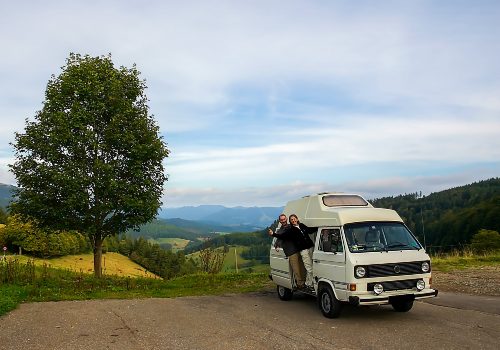
If your home is full of things you barely use or has boxes crammed in storage, an RV will force you to become a minimalism expert. RVs have limits on storage capacity for food, camping supplies, and personal items but also have weight limits so the chassis, suspension, and tires do not fail.
When you downsize to move into an RV, it initially seems impossible to “live with so little” to meet the restrictions until you learn how joyous it feels when things are more straightforward.
However, it’s a good idea for anyone considering an RV retirement to choose the correct size camper to comfortably hold the items they require (and even a few just for fun). You certainly don’t want to feel like you’re sacrificing personal enjoyment to live in a recreational vehicle.
After you downsize your personal belongings, you’ll enjoy a sense of lightness and practicality because daily tasks become more manageable.
You’ll have fewer dishes and clothes to wash, a deep RV clean goes quickly, and dusting is a breeze with little wall space to hang pictures or shelves for knick-knacks. A limited wardrobe makes getting dressed simple, without digging through drawers and closets looking for an item.
Another bonus is that space limitations curtail the urge to buy things that aren’t necessary, so you save money along the way.
5. Workamping

If you want to pad your income during your RV retirement, workamping is an excellent option if you’re in good physical health, no matter your age.
Workamping is taking a job at a public or private campground or RV park. Most contracts are anywhere from three to 12 months, with the option to extend if both parties are agreeable.
Most workamping agreements typically include a free campsite, water, Wi-Fi, cable, electricity, and laundry as part of the exchange for your labor. Most public campgrounds want you to work 20-30 hours a week, while private RV parks often prefer 32-40 hours weekly.
There are three types of workamping job compensation packages.
– Working a set number of hours weekly as a solo or couple in exchange for a free campsite and extras.
For example, my RV friends take a three-month position at a Florida State park in an excellent location near the beach. They need to work 20 hours total for the campsite, which means they both can work 2 hours each morning (four hours total) five days a week, or one person can work five hours a day, four days a week.
– Working a set number of hours weekly, with a portion of hours covering campsite fees and extras, and for overage hours you receive hourly pay.
I prefer this workamping option, as it provides a free campsite and a small paycheck to spend on sightseeing and entertainment in the area.
– Working a set number of hours weekly, with all hours paid. Then you must pay for your campsite at a discount from standard rates.
This workamping option is not bad, as long as the money doesn’t interfere with any external benefits you may be receiving, such as being on disability.
The types of jobs needed at campgrounds are:
- Office staff
- Maintenance
- Housekeeper
- Campground Host
- Store Clerk
- Manager/Assistant Manager
Most full-time RV retirees love workamping as it allows them to explore new areas at little to no cost, with a rarely stressful workload. To check out workamping opportunities visit workampingjobs.com or workamper.com websites.
6. Pet-Friendly Travel
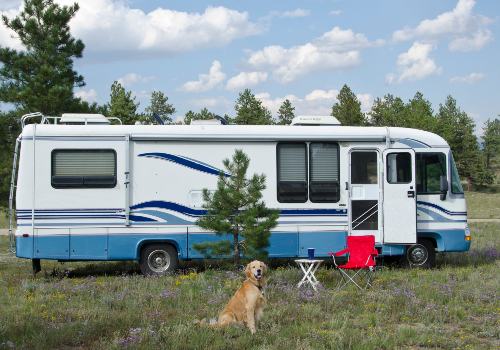
RV retirement is ideal for pet owners because most campgrounds and private RV parks are incredibly pet-friendly. In addition, traveling with your furry (or feathery!) companions is a blessing that is difficult when you stay in hotels or fly.
As long as your pet isn’t causing a disturbance to other campground guests if you’re outside or away from your RV and you follow park rules, you should have no issues.
Many RV parks have walking paths, doggie bags and waste collection posts, dog wash stations, and dog runs to make your stay more enjoyable.
If you need more clarification about traveling with pets after you retire, check out gopetfriendly.com, which offers helpful ideas, support, and resources for pet parents.
7. You Have More Opportunities to Be Active
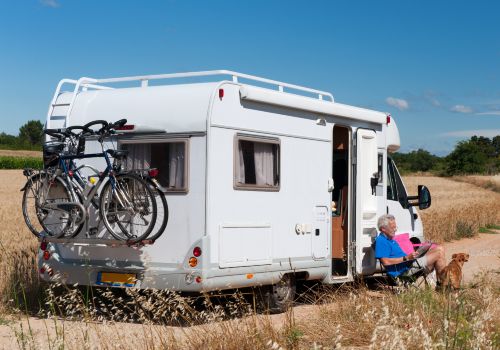
An RV retirement provides ample opportunity to remain active as you get older. Visiting new locations is always exciting and pulls you outside to see the sights and take in the local culture.
You can choose less-busy campgrounds that allow you to explore scenic national and state parks if you like your privacy. Or, you can reserve a campsite at an RV park that offers daily activities like card games, karaoke, happy hour, horseshoes, shuffleboard, pickle ball, dances, crafts, water aerobics, and so much more if you love socializing.
Want to Connect With a Community of Over 1,078 RV Enthusiasts?
You can always hang out, read, and relax all day. But overall, the RV lifestyle encourages you to get outside, enjoy the scenery, and make new friends, which will keep you happier and healthier.
8. It’s Easy to Visit Family and Friends
Keeping in touch with all your family and friends is easy when you choose RV retirement. You can plan your route to stop in for visits, and you don’t even have to ask for accommodations as you’re already traveling with your “home.”
If you can’t locate a campground nearby, most cities allow RVs to park in the street or driveway in residential areas for a week or so (always consult local laws, especially in HOA neighborhoods).
While you won’t have access to 50- or 30-amp service, an appropriately sized extension cord, adapter, and water source will keep you comfortable for your stay. However, installing a residential 30 or 50-amp RV outlet is relatively inexpensive, and if you visit often, you can offer to pay for it to make future visits more convenient.
Time freedom is a massive perk for RV retirees, which means family and friends who work or have other obligations that tie them to home can still see you without undue stress on their end.
9. Instant Community

Once you join the ranks of full-time RVer, you’ll encounter the most friendly, generous, and helpful fellow RVers on your journeys. I always refer to the seasonal and full-time RV lifestyle as a subculture that outsiders don’t understand.
There is something very comforting about pulling into a campground and knowing everyone around you (well, most of them!) has the same fun and adventurous attitude about life. If your RV breaks down, most of the time, it’s a fellow RVer who will stop to help.
Along with becoming part of a network of fellow travelers across the US, you can also join fantastic RV clubs and online forums that organize rallies and educational events to meet up and have a great time.
Many clubs offer discounted RV supplies, campsite charges at select campgrounds, and other special perks worth the annual fee.
Another popular choice for RV retirees is to rent or buy a campsite in an RV resort or community. This option allows you to park your camper for months, years, or permanently, which reduces the strain and expense of continual road trips.
RV communities are full of like-minded individuals who love having the option to socialize or exercise without leaving the property. Most large RV resorts or communities have onsite restaurants, coffee shops, stores, activities, libraries, pools, golf courses, fitness centers, and other amenities to keep residents busy.
Making new friends is super easy in this environment, as everyone is welcoming and fun-loving.
10. The RV Life Changes Your Mindset
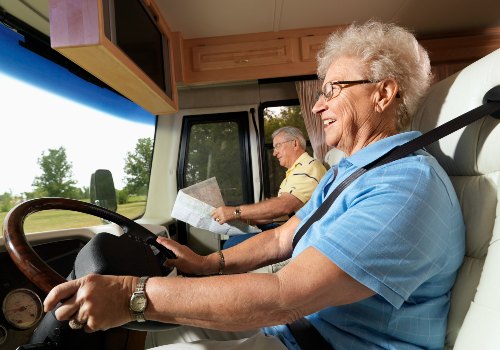
After a year or two of full-time RVing, you’ll start noticing a positive change in how you think about life and current events. This is because the RV lifestyle involves lots of self-sufficiency, an open mind, extra time outdoors, and fewer daily distractions that alter how you think and react to current events.
Once you go weeks, months, and years without items you “couldn’t live without” in your old life, you see that they weren’t essential to begin with. You lose that urge to buy things that aren’t a necessity as you probably won’t have room for it anyway.
Time structure becomes less important, and you’ll often lose track of what day of the week it is (in a good way!). You start to live by your internal clock and can stay up, go to bed, or nap whenever you please.
At some point, all long-time RVers realize that you’ve become totally present when talking to others, enjoying a hobby, or taking in the sites of a new town.
You don’t have that constant inner monologue about what you need to do later today or what you want to do or say next. Instead, your mind is clear and at peace, letting you take in conversations and experiences on a whole other level that is very meaningful.
RV life is also more private than it appears. Fellow campers respect other RVers’ time and space, which lets you relax and follow the beat of your own drum.
In Summary
RV life isn’t for everyone, but you’ll never know if you don’t give it a try! I refer to our RV as a vessel of freedom that lets us explore our country, visit friends and family, and make new friends and memories daily without straining our budget.
I do suggest everyone rent or borrow an RV and take an extended trip if they’re considering retiring in an RV, as the lifestyle is not for everyone. But if the RV bug catches you, don’t be afraid to give it a chance!
How to Retire in an RV and Start a New Life (Video)
"Man cannot discover new oceans unless he has the courage to lose sight of the shore."
-- Andre Gide

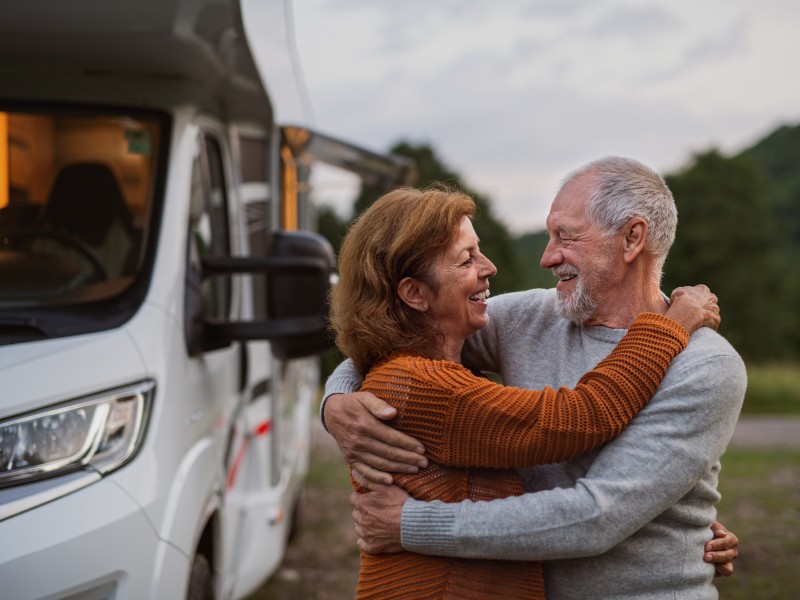

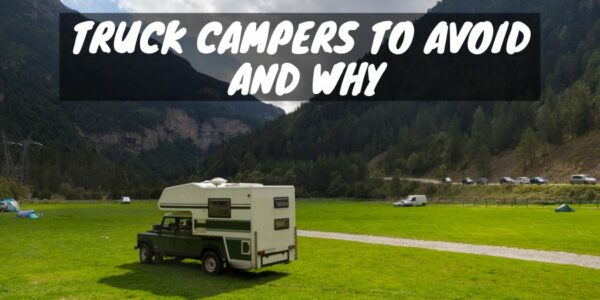
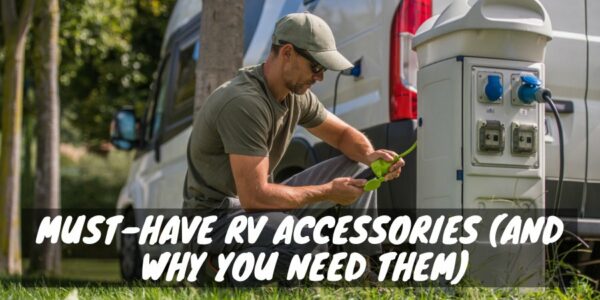

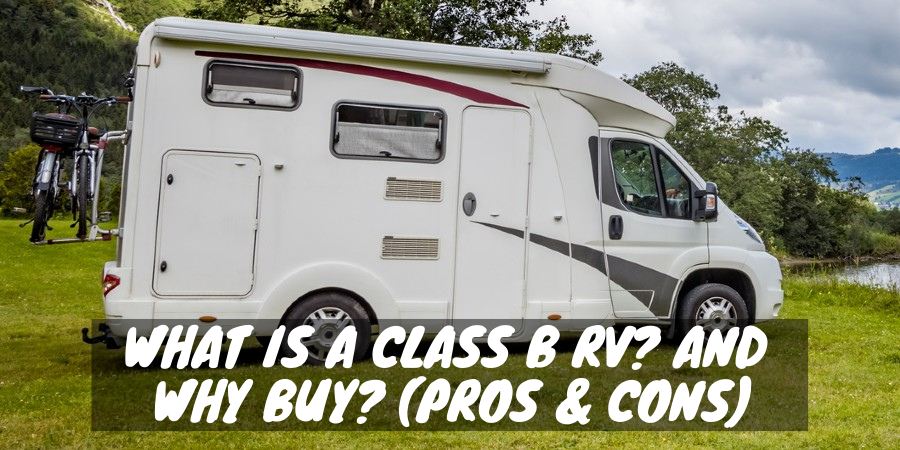


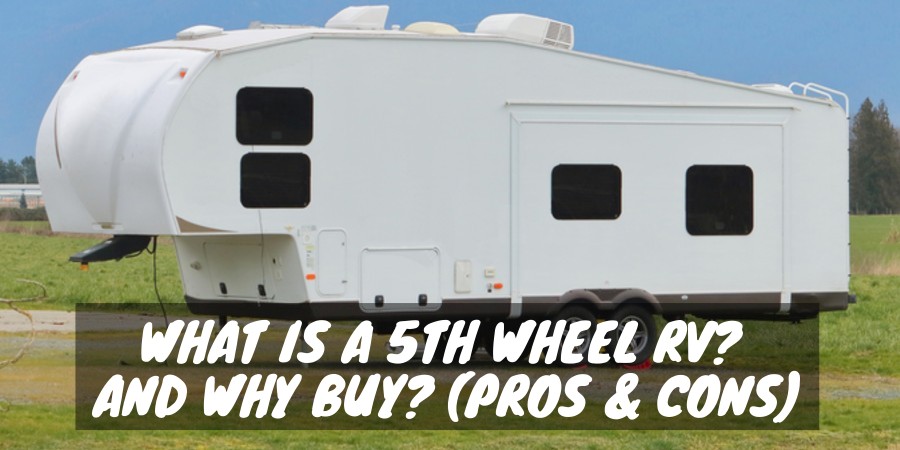
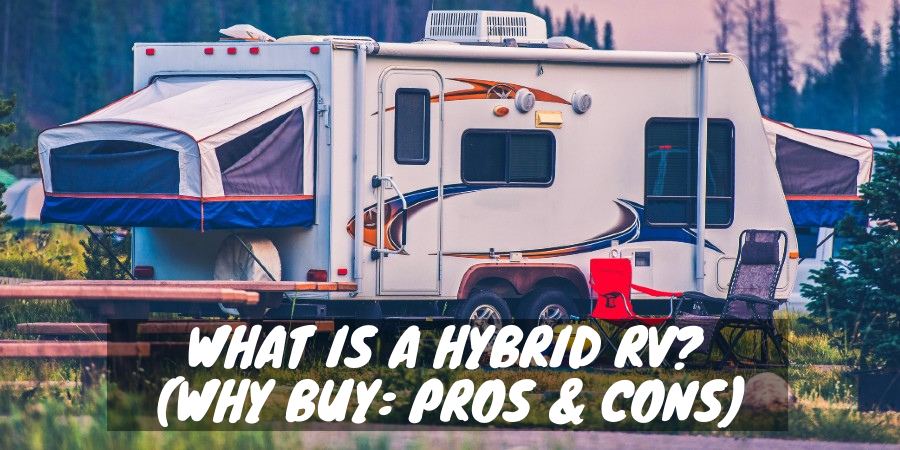
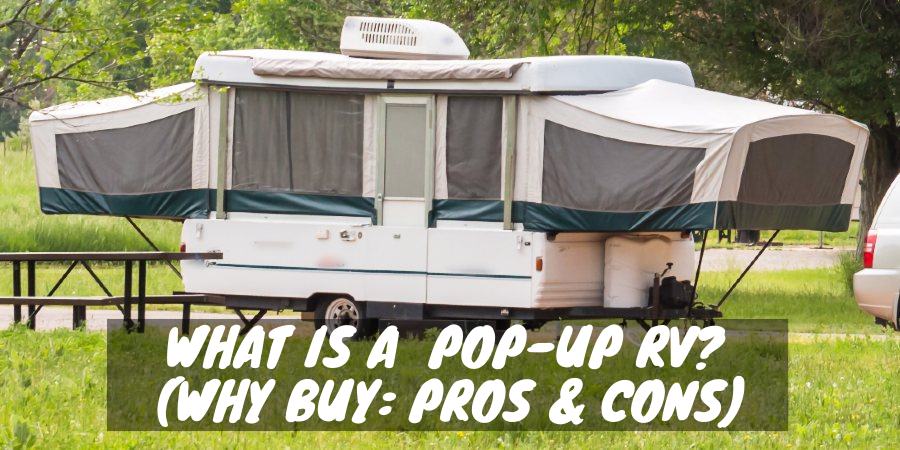
Hello, i been try to Convince my wife to go full-time rving. But she has grandchildren an two sons. She doesn’t want to leave them. So iam thinking on going on my own. But we have rental properties. I want to sell some of them so i can but a used diesel pusher. My wife is not a people person. She likes to be alone. So you know what iam thinking. But i will see what happens real soon. Thank you for your time.